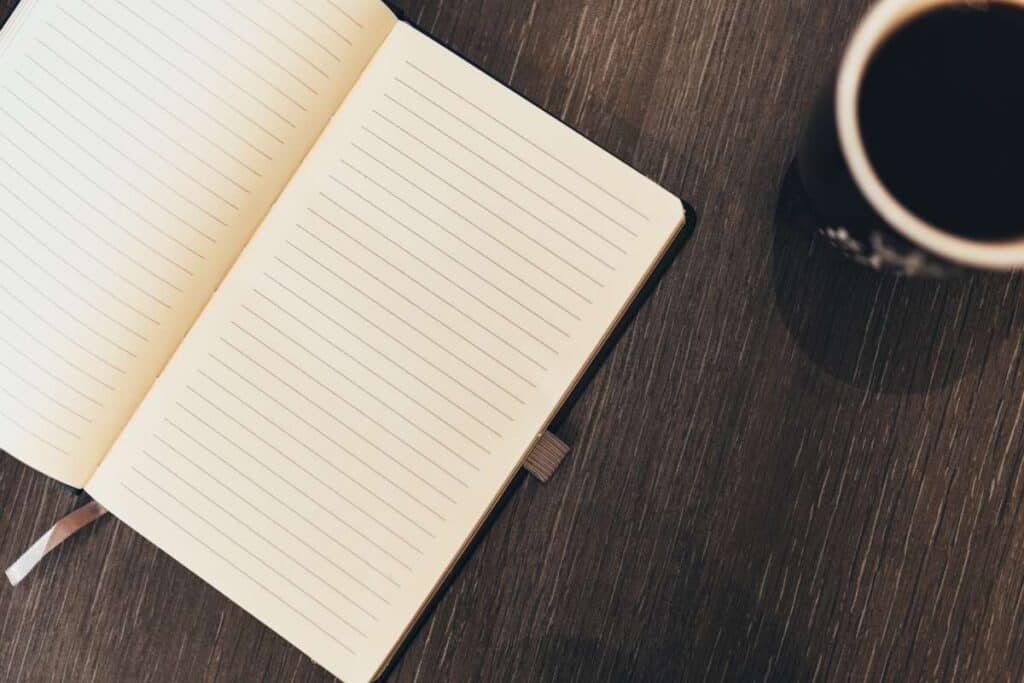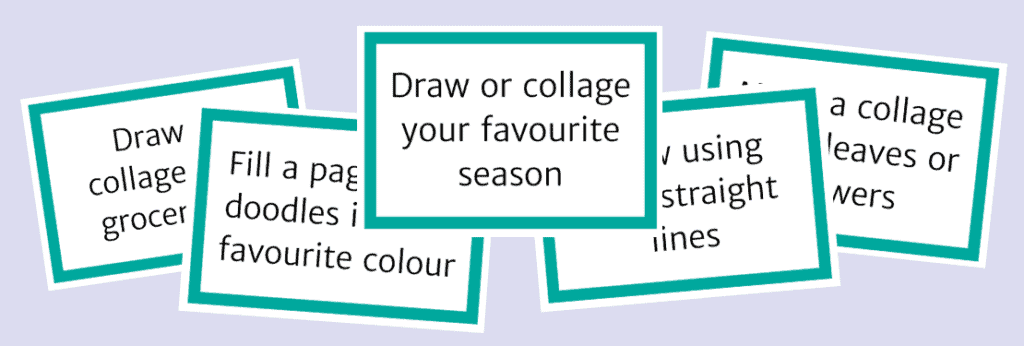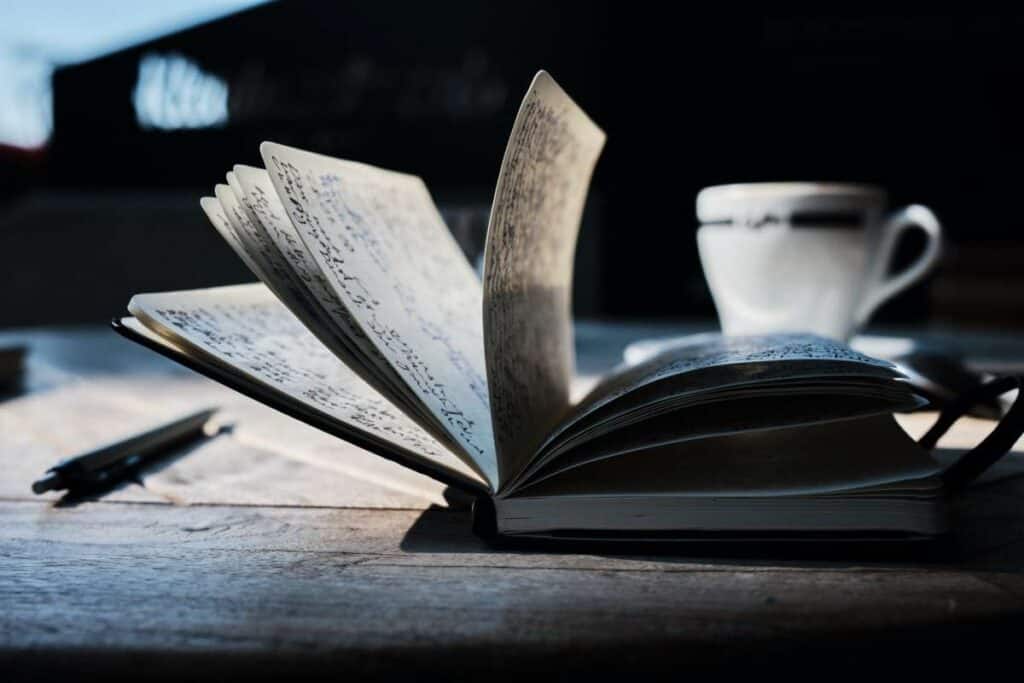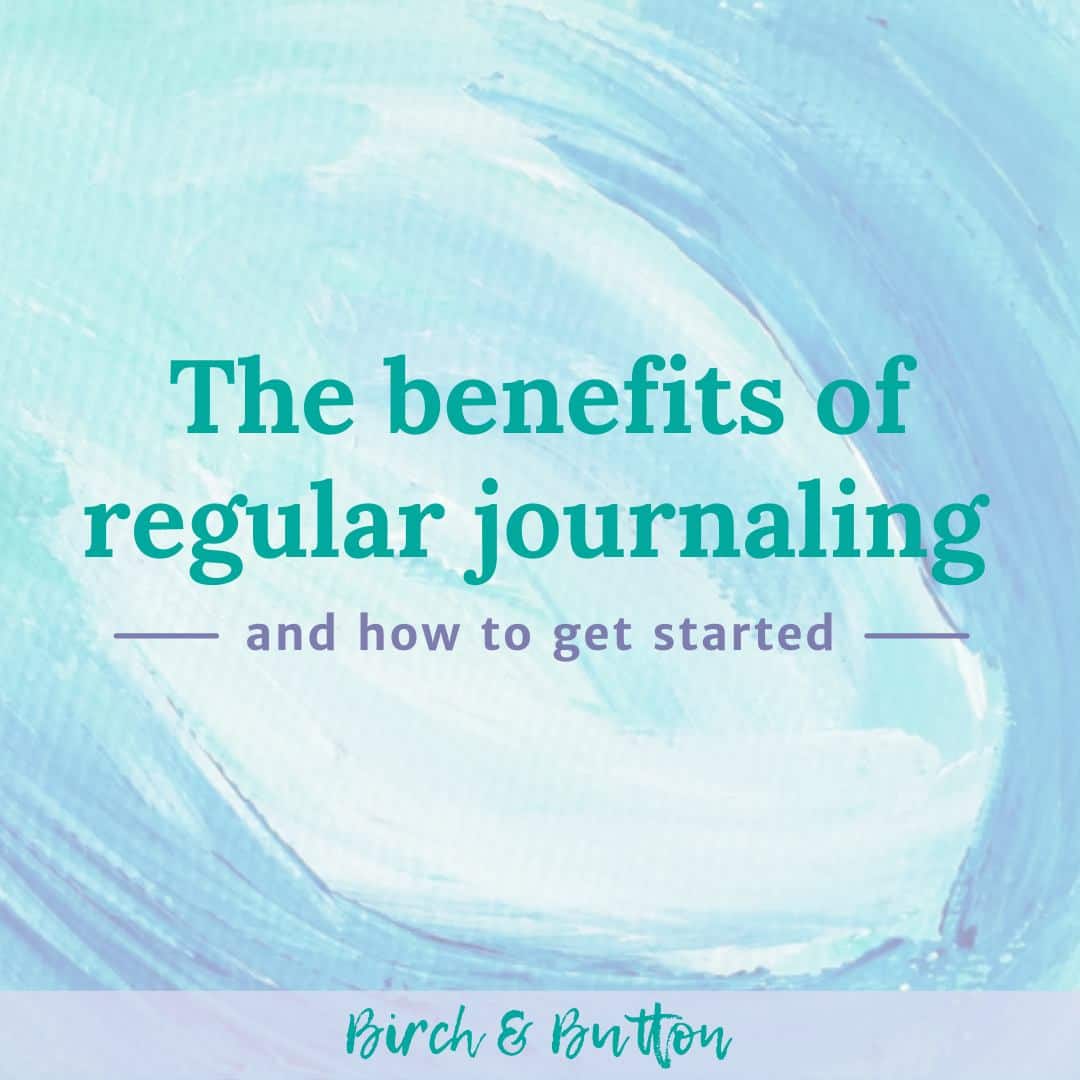I’ve got a lot of time for art journaling as a form of expression. But what about the days when you just want to explore an idea or get something down on paper quickly, without waiting for gesso to dry or even thinking too much about what you’re doing? Well for me, that’s where regular journaling comes in.
I’ve also been a sporadic journaler for some time, with a regular notebook and pen, but I’ve not really stuck at it. To be perfectly honest, I don’t think I really found an approach that worked for me, until I realised the ‘right’ way was however I felt like journaling at that moment.
When I realised that, things opened right up for me and I relaxed into it. I don’t journal every day, and on the days I do the amount I write varies a lot. And sometimes I’ll add a sticker or two, or some washi, or a doodle.
Some days I’ll write in longhand, others it’ll be a list or some half formed notes. Maybe a mindmap (love a mindmap!). Generally there are arrows leading off to additional notes or thoughts. But it doesn’t matter how it looks, as long as it serves me in the moment.
Recently I’ve become more interested in understanding how journaling affects me, physically and mentally. I knew it felt good, but why?

Sign up for my monthly emails of creative tips, tutorials and DIYs and get 31 free creative prompts!

You can unsubscribe at any time
The benefits of journaling
It turns out there are a number of surprising benefits of regular journaling (sorry to sound like clickbait, but it really is true…). I’ll focus on three of the benefits of journaling here.
1. Journaling boosts your creativity
Well, obviously I’m going to start with this one – it’s what this entire blog is about after all!
You may have already heard of Julia Cameron’s morning pages, as described in her book the Artist’s Way. It’s basically three pages of stream of consciousness writing, done first thing in the morning. It doesn’t need to be fancy or even make sense.
However you’re feeling when you wake up, whatever pops into your mind, write it down – the good, the bad and the ugly. No judgement. Julia Cameron describes it as: “a clearing exercise”, which sounds like a great way to start the day to me!
Let your journal be the place where you get things out of your head. If something is on my mind – whether it’s something I need to do, or something that’s worrying me – journaling really helps free up some mental headspace. If my brain is an internet browser, journaling feels like closing a tab or two to make things clearer.
Work out any ideas that are half formed or trying to come to light. Have a conversation with yourself on the page. Just let it happen without self-censoring.
2. There are mental health benefits to journaling
Studies have shown regular journaling has some amazing mental health benefits. It can:
- Reduce anxiety
- Reduce depression
- Improve working memory
- Help process stressful events, like break-ups
Practising gratitude might just feel like the latest trend, but doing it regularly has a huge number of benefits, both mental and physical. Some of the mental benefits include increasing feelings of happiness and optimism, and improving resilience levels.
Writing a short list of things to be grateful for each night is a great way to get into a regular journaling practice. Some days it will feel easier than others, but start with three things and see how you go.
It doesn’t matter how small or simple those things seem. Maybe you made a particularly delicious cup of tea or coffee, or a traffic light you thought was about to turn red stayed green – they all count.
3. Journaling has physical health benefits too
Not only can regular journaling benefit your mental health, but it’s been shown to improve physical health too.
As mentioned above, practising gratitude also brings physical benefits. These include helping you sleep better and just being generally good for your health.
In 2005, Baikie and Wilhelm found regular expressive writing (that is, journaling about stressful or emotional events) had the following long-term physical benefits:
- Fewer stress-related visits to the doctor
- Improved immune system
- Reduced blood pressure
- Improved lung function
- Improved liver function
- Feeling of greater psychological well-being

How to get started with journaling
As a prize procrastinator, I know exactly how important it is to make things as easy as possible. Yes, sometimes even the things I enjoy doing (I know, it’s ridiculous… 🙄)
So here are my best tips for starting journaling:
1. Get a journal and pen you’ll actually use
This will look different for different people.
It could mean a journal with thick, creamy paper and a pen that cost more than some people would spend on a month’s groceries, that glides across the page and makes every word feel luxurious. If that would feel like a treat to you, go with that.
On the other hand, the thought of expensive journaling supplies might make you freeze up, terrified any (inevitable) mistakes will ruin the feel of that beautiful journal. If that means you feel more comfortable using a cheap notebook with thin, crunchy paper, carry on!
I’ve found a sweet spot with a few different notebooks. They’re nothing unusual for journalers – Moleskine, Leuchtturm1917 and Oxford Red and Black, which I use for various purposes. I especially love the paper in this last brand, but it’s only available lined, which is a shame.
And my pen of choice is a slim Parker Sonnet which was given to me as a gift and feels lovely to write with. Until that point I’d been using any old biro, and boy do you notice the difference…
You might also try using coloured pens, stickers, washi tape, stamps or any other embellishments to make journaling feel even more fun. Just don’t get so caught up in the details that it stops you writing!
2. Don’t overthink it
Not only am I a procrastinator, but I’m an overthinker too. Because if you sit down and really think about what you’re going to write, it suddenly gets a lot harder.
Just writing about how you’re feeling at that particular moment is valid, as is writing about anything that’s on your mind.
If you’re using a prompt, of course you need to consider the prompt. But thinking about it to the point where you’re second guessing every word is actually counterproductive. Instead, give it a bit of thought, then start writing and see where your pen ends up.
It’s when you get into the flow of writing that you unearth those juicy nuggets that make you go: “Oh wow, that’s what I think?!” and want to dig in further and see what else you can discover.
That’s not to say it’s only worth journaling if you feel you have a lot to write about. Whether you write half a page or ten pages isn’t important – you stop when you feel ready to stop and that’s just fine.
3. Say no to perfectionism
Yup, easier said than done – believe me, I know. But perfectionism is a huge barrier to journaling, and if you’re unlucky enough to be affected by both overthinking and perfectionism (🙋♀️), you’ll hardly ever pick up your pen.
Let’s think about it – what’s the worst that could happen if you accidentally make a mistake or misspell a word? (Hint: nothing – you just carry on. Or turn it into a quick doodle, and then carry on.)
Or say you’re in the zone and writing so fast your hand can’t keep up with your brain, making your handwriting messy. Does it actually matter?
Journaling is a way to process and work through thoughts, so it really doesn’t need to be perfect and ordered.
You may want to go back and read what you’ve written later, or it may have served its purpose as soon as it’s on the page. Either way, it doesn’t need to be perfect for you to do that.
Stopping any perfectionist tendencies is an ongoing process, but rest assured it does get easier with time.
What are your thoughts on the benefits of journaling? Are you a journaler? Or is it something you’d like to try after reading this blog post?
About Stacey

I’m Stacey and I’m a blogger, abstract artist and freelance writer. My aim is to help busy people feel inspired and get more creative with tutorials, hints and tips.
I live in Cardiff with my partner and dog, and in my free time you’ll find me hiking, reading, painting or sampling a craft beer or two.

